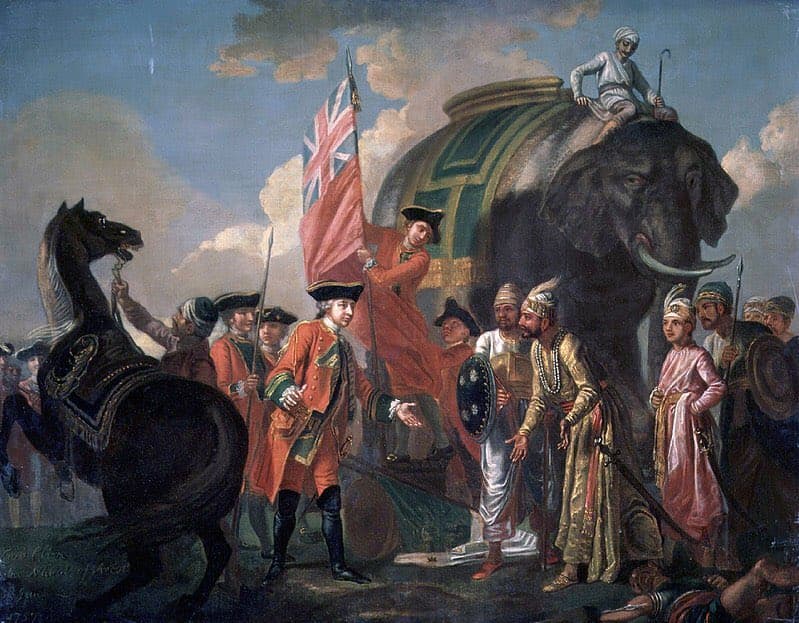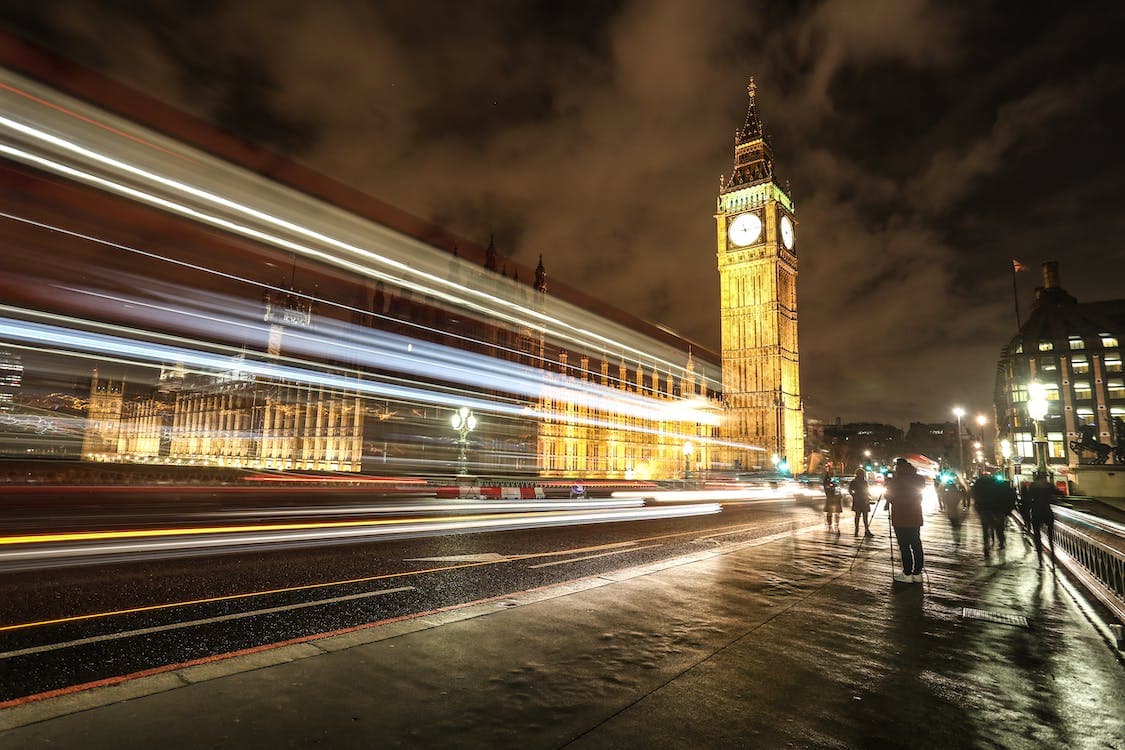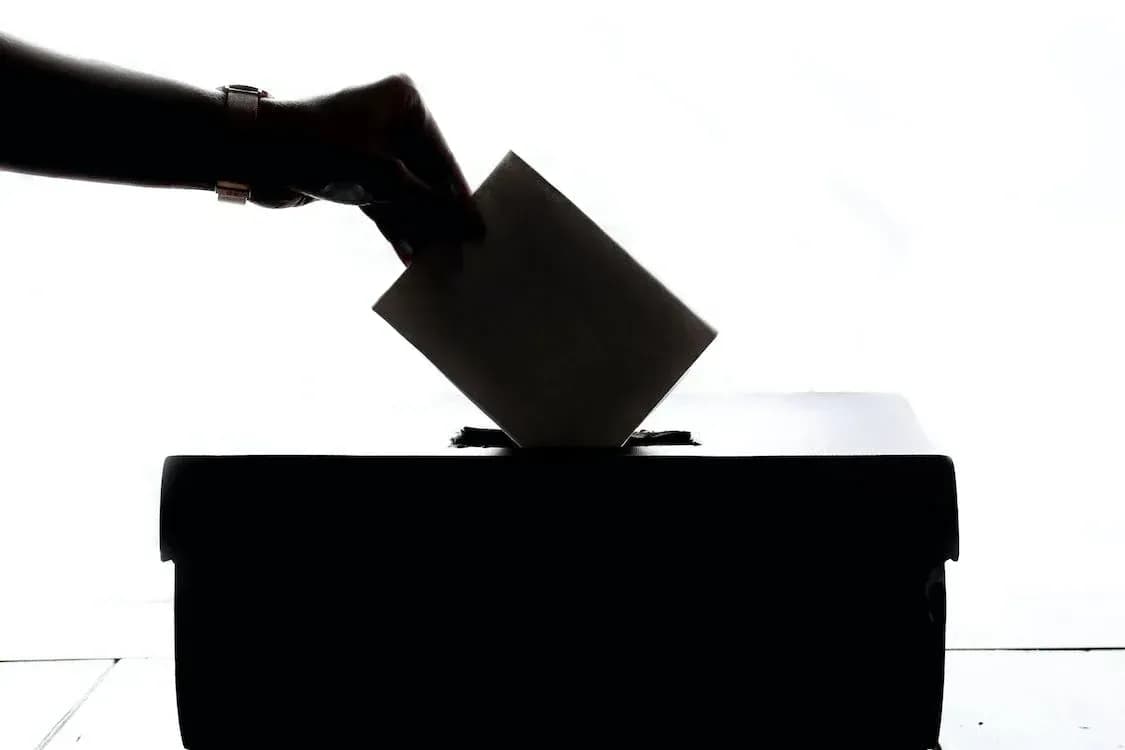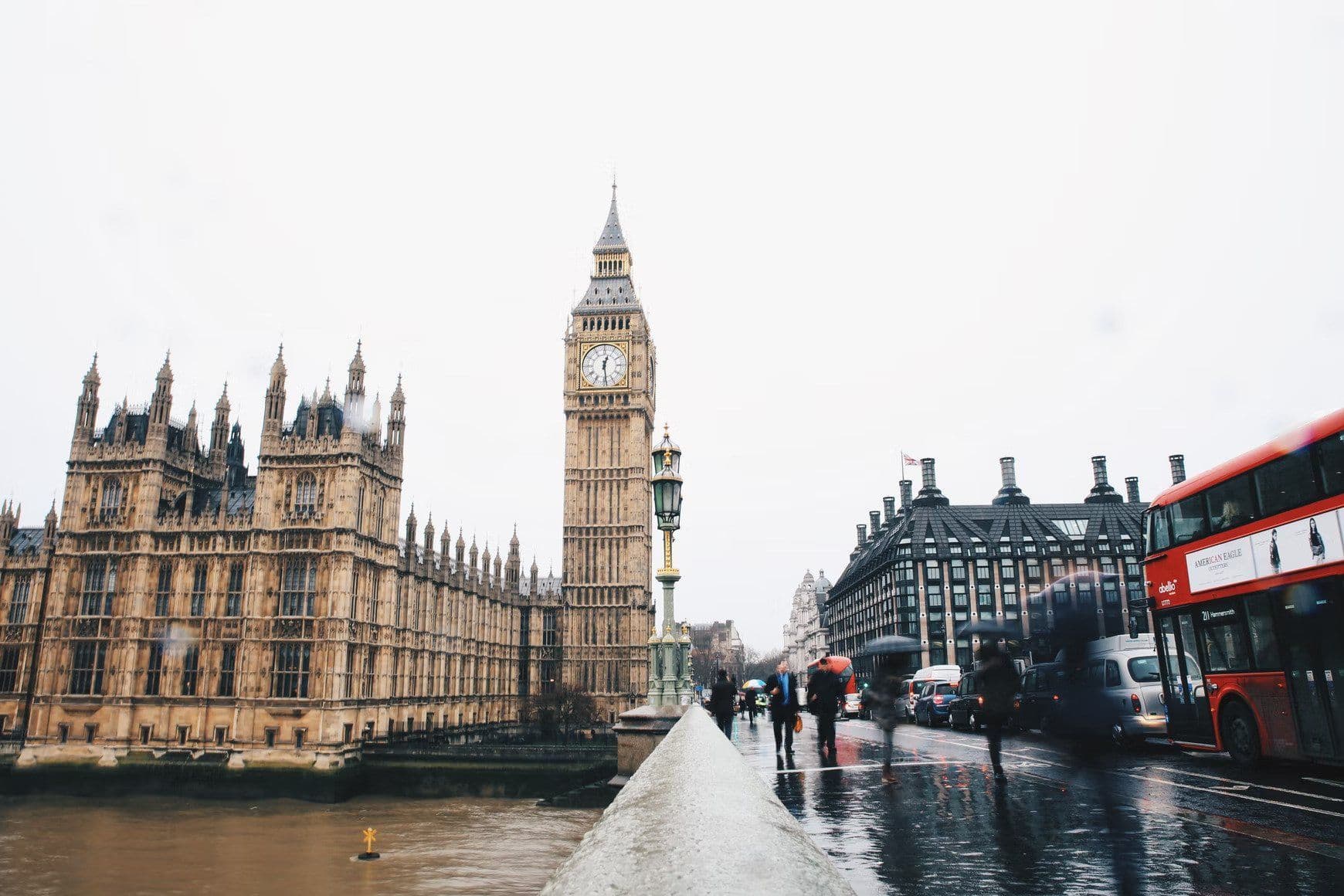
To give its full title, the Public Order Bill is:
“A Bill to make provision for new offences relating to public order; to make provision about stop and search powers; to make provision about the exercise of police functions relating to public order; to make provision about proceedings by the Secretary of State relating to protest-related activities; to make provision about serious disruption prevention orders; and for connected purposes.”
This Bill came about as a result of the particularly disruptive protests championed by the likes of Extinction Rebellion, among others. These protests caused serious disruption to the lives of ordinary, law abiding people, attempting to undertake their daily routines and lawful activities. These protests were intended not to demonstrate overwhelming public support for a particular cause, but instead to generate public anger and civil disruption in the hope of forcing a disagreeable government's hand. Well, they got a response, though I imagine not the one they were after.
Offences outlined and powers given by the Bill include:
- Offences relating to locking on (ie chaining oneself to something)
- Offences related to tunnelling (ie mining under something to prevent works)
- Offences involving works and infrastructure (ie blocking roads)
- Powers to stop and search (both with and without suspicion)
- Processions, assemblies and one-person protests
And these make sense given the full title of the Bill. One offence which seems incongruous however is:
- Interference with access to or provision of abortion services
Of course abortion, whether for good or ill, is legal in the UK and so, as per the law of the land, of course no one should have the access to the provision of abortion services interfered with. On the face of it this would, therefore, seem a reasonable position to hold and therefore to legislate for, if needed.
The reader may be familiar with the term ‘PSPO’, or ‘Public Space Protection Order’. Section 59 of the Anti-Social Behaviour, Crime and Policing Act 2014 granted local authorities the power to implement such orders, which ostensibly provided wider discretionary powers to deal with nuisances or problems which harmed local communities. However, as is often the case with these subjective and ill-formed laws, local authorities and other parties find ways to use and abuse them to their own ends.
Ealing became the first council to use this law to create a so-called ‘buffer zone’ around the vicinity of an abortion clinic after it was reported that those protesting in the clinic’s vicinity had a detrimental effect on the locality, including residents, visitors to the clinic, staff and those passing through the area, resulting in rescheduled and cancelled appointments. I can not verify the above however if events were as described, this would not seem a particularly controversial approach. Whilst people ought to be entitled to make their feelings known regarding abortion, when this spills over into actual intimidation of people engaged in lawful activity, I do believe that this raises legitimate questions or concerns regarding public order.
Since Ealing, various councils have implemented similar PSPOs, typically citing the same reasons. The activities prevented in these Orders (per the Robert Clinic, Station Road B30 Order) are as follows:
- Protesting, namely engaging in any act of approval or disapproval or attempted act of approval or disapproval, with respect to issues related to abortion services, by any means. This includes but is not limited to graphic, verbal or written means, prayer or counselling,
- Interfering, or attempting to interfere, whether verbally or physically, with a Robert Clinic service user, visitor or member of staff,
- Intimidating or harassing, or attempting to intimidate or harass, a Robert Clinic service user, visitor or a member of staff,
- Recording or photographing a Robert Clinic service user, visitor or member of staff or
- Displaying any text or images relating directly or indirectly to the termination of pregnancy.
Without wishing to get in to the debate over what constitutes healthcare and the relative merits of people offering alternative support outside these clinics, the particularly draconian part is that by creating a crime of prayer you create an environment in the UK where thoughts, which can’t possibly be known by any other person unless asked for, become a potential criminal activity and a cause for arrest.
This has been put to the test as recently as this year where Isabel Vaughan-Spruce was filmed, on camera, being arrested for being engaged in silent prayer in just such a buffer zone. The video recording of the incident appeared to show no other outward sign or protest as outlined by the list of proscribed activities above. The only way it was possible for the officer to determine that she was praying and therefore suspected of breaking the law was to ask her. Had she lied, and therefore knowingly misled the officer (and acted contrary to her faith), there could have been no possible way to know otherwise. Such is the ludicrousness of the law in this scenario.
Fortunately, as it happens, both Isabel Vaughan-Spruce and Father Sean Gough, also accused of silently praying within the same buffer zone (but holding a sign to the effect), were acquitted in court (Vaughan-Spruce has since been arrested again, for the same offence). Unfortunately this is not the end of the matter and this is where the Public Order Bill comes in.
MPs, as part of this Bill, have sought to impose buffer zones upon the entirety of the UK. Following the end of this article I have provided the full text of the Bill as pertaining to ‘Interference with access to or provision of abortion services’ as put to the House of Lords by the Commons and the amendments made by the House of Lords (which I believe were accepted by the Commons). Whilst this Bill is still progressing through Parliament and is currently in a stage known as ‘ping pong’ I believe it is now past the point where anything short of the denial of Royal Assent (something not denied since 1708 in Queen Anne’s reign) would derail it as it pertains to this particular offence. Unfortunately this means that it is highly likely that in the immediate future no contrary views will be able to be expressed within the 150 metre ‘safe zone’ of any healthcare facility (which provides abortion services) in the UK.
A group of MPs, headed by Andrew Lewer MBE did make an attempt to propose an amendment (a) to the Lords amendment 5, as follows:

The Hansard record of the debate is here.
This sought to clarify that prayer was not included under the offences outlined in the Bill, and also attempted to create a provision for consenting adults to have discussions or ‘communications’ regarding the services sought. Unfortunately this amendment was voted down, 116 votes to 299. The details of who voted and how can be seen here.
To me this is a frustrating result as it provides no clarity over prayer (and therefore thought) and whether it is a criminal offence in such a space, leaving a grey area for law enforcement to abuse. In addition it appears to create perverse scenarios such as where a husband or partner, who may wish to explore alternatives to abortion, would become guilty of a crime by attempting to have such a conversation with their pregnant wife or partner, who may even consent to such interaction if a third party objects.
This aversion to consent is consistent with the general tone of political thought at present, we see the same attitude in relation to so-called conversion therapy, which is typically communication between consenting adults (and not electro-shock therapy or whatever fanciful images the words ‘conversion therapy’ conjure in the mind). The government seems intent to forcefully insert itselves into the lives of individuals where an unconnected third party objects, or even in cases where no one objects at all.
It is crucial that we, as (small c) conservatives, pay close attention to those who vote both for and against Bills and amendments like this as we enter into the next election cycle. There remains within the party a core of conservative MPs who can be counted upon to express our views. The signatories to the above amendment, including Andrew Lewer, Miriam Cates, Desmond Swayne, as well as those voting in favour of this amendment; Lee Anderson, Suella Braverman, Christopher Chope, Mark Froncois, Jacob Rees-Mogg among a host of others, whilst not perfect (is anyone?), exhibit behaviour that suggests we can work with them.
If Labour are to win the next election, it’s vital that we keep as many of these MPs as possible so that the future of the Conservative party is represented by them and not the Neo-Blairites, who have held and contrived to subvert power against the wishes of the wider party and electorate. It is crystal clear, perhaps worryingly so, from this vote that the Labour party is lock-step in opposition to freedom of thought and consensual opposition.
As usual, if you agree with our position and your MP voted for consensual conversation and against thought crime then I encourage you to reach out to them and thank them for their principled position. Let them know that they do indeed represent you and enquire, if possible, how you might support them in your local area, your support may make all the difference in the future. If they voted against the amendment, or abstained, then enter into dialogue with them, ask them why and make your own thoughts known to them. It is possible that they have not even considered your position.
As presented to the Lords
9 Offence of interference with access to or provision of abortion services
(1) A person who is within a buffer zone and who interferes with any person’s decision to access, provide, or facilitate the provision of abortion services in that buffer zone is guilty of an offence.
(2) A “buffer zone” means an area which is within a boundary which is 150 metres from any part of an abortion clinic or any access point to any building or site that contains an abortion clinic and is—
- on or adjacent to a public highway or public right of way,
- in an open space to which the public has access,
- within the curtilage of an abortion clinic, or
- in any location that is visible from a public highway, public right of way, open space to which the public have access, or the curtilage of an abortion clinic.
(3) For the purposes of subsection (1), “interferes with” means
- seeks to influence,
- persistently, continuously or repeatedly occupies,
- impedes or threatens,
- intimidates or harasses,
- advises or persuades, attempts to advise or persuade, or otherwise expresses opinion,
- informs or attempts to inform about abortion services by any means, including, without limitation, graphic, physical, verbal or written means, or
- sketches, photographs, records, stores, broadcasts, or transmits images, audio, likenesses or personal data of any person without express consent.
(4) A person guilty of an offence under subsection (1) is liable—
- in the first instance—
- on summary conviction, to imprisonment for a term not exceeding 6 months,
- to a fine not exceeding level 5 on the standard scale, or
- to both; and
- on further instances—
- on conviction on indictment, to imprisonment for a term not exceeding 2 years, or to a fine, or to both, or
- on summary conviction, to imprisonment for a term not exceeding 12 months, or to a fine, or to both.
(5) Nothing in this section applies to—
- anything done in the course of providing, or facilitating the provision of, abortion services in an abortion clinic,
- anything done in the course of providing medical care within a GP practice, hospital or other healthcare facility,
- the operation of a camera if its coverage of persons accessing or attempting to access an abortion clinic is incidental and the camera or footage is not used for any of the purposes listed in subsection (3), and
- a police officer acting properly in the course of their duties.
Lords Amendment: Leave out Clause 9 and insert the following new Clause—
9 Offence of interference with access to or provision of abortion services
(1) It is an offence for a person who is within a safe access zone to do an act with the intent of, or reckless as to whether it has the effect of—
- influencing any person’s decision to access, provide or facilitate the provision of abortion services at an abortion clinic,
- obstructing or impeding any person accessing, providing, or facilitating the provision of abortion services at an abortion clinic, or
- causing harassment, alarm or distress to any person in connection with a decision to access, provide, or facilitate the provision of abortion services at an abortion clinic, where the person mentioned in paragraph (a), (b) or (c) is within the safe access zone for the abortion clinic.
(2) A “safe access zone” means an area which is within a boundary which is 150 metres from any part of an abortion clinic or any access point to any building or site that contains an abortion clinic and is—
- on or adjacent to a public highway or public right of way,
- in an open space to which the public has access,
- within the curtilage of an abortion clinic, or building or site which contains an abortion clinic, or
- in any location that is visible from a public highway, public right of way, open space to which the public have access, or the curtilage of an abortion clinic.
(3) No offence is committed under subsection (1) by—
- a person inside a dwelling where the person affected is also in that or another dwelling, or
- a person inside a building or site used as a place of worship where the person affected is also in that building or site.
(4) A person guilty of an offence under subsection (1) is liable on summary conviction to a fine.
(5) Nothing in this section applies to—
- anything done in the course of providing, or facilitating the provision of, abortion services in an abortion clinic,
- anything done in the course of providing medical care within a regulated healthcare facility,
- any person or persons accompanying, with consent, a person or persons accessing, providing or facilitating the provision of, or attempting to access, provide or facilitate the provision of, abortion services, or
- the operation of a camera if its coverage of persons accessing or attempting to access an abortion clinic is incidental.
(6) In this section—
“abortion clinic” means—
- a place approved for the purposes of section 1 of the Abortion Act 1967 by the Secretary of State under subsection (3) of that section, or
- a hospital identified in a notification to the Chief Medical Officer under section 2(1) of the Abortion Act 1967 in the current or previous calendar year, and published identifying it as such, where “current” or “previous” are references to the time at which an alleged offence under subsection (1) of this section takes place;
“abortion services” means any treatment for the termination of pregnancy;
“dwelling” has the same meaning as in section 1 of this Act (offence of locking on).”
More from John
Latest articles

Aboukir Bay - The Naval Battle Which Made a Hero

The Dukes of the North

Marching Sheepishly: How the British wool industry helped the French to win the War of the First Coalition
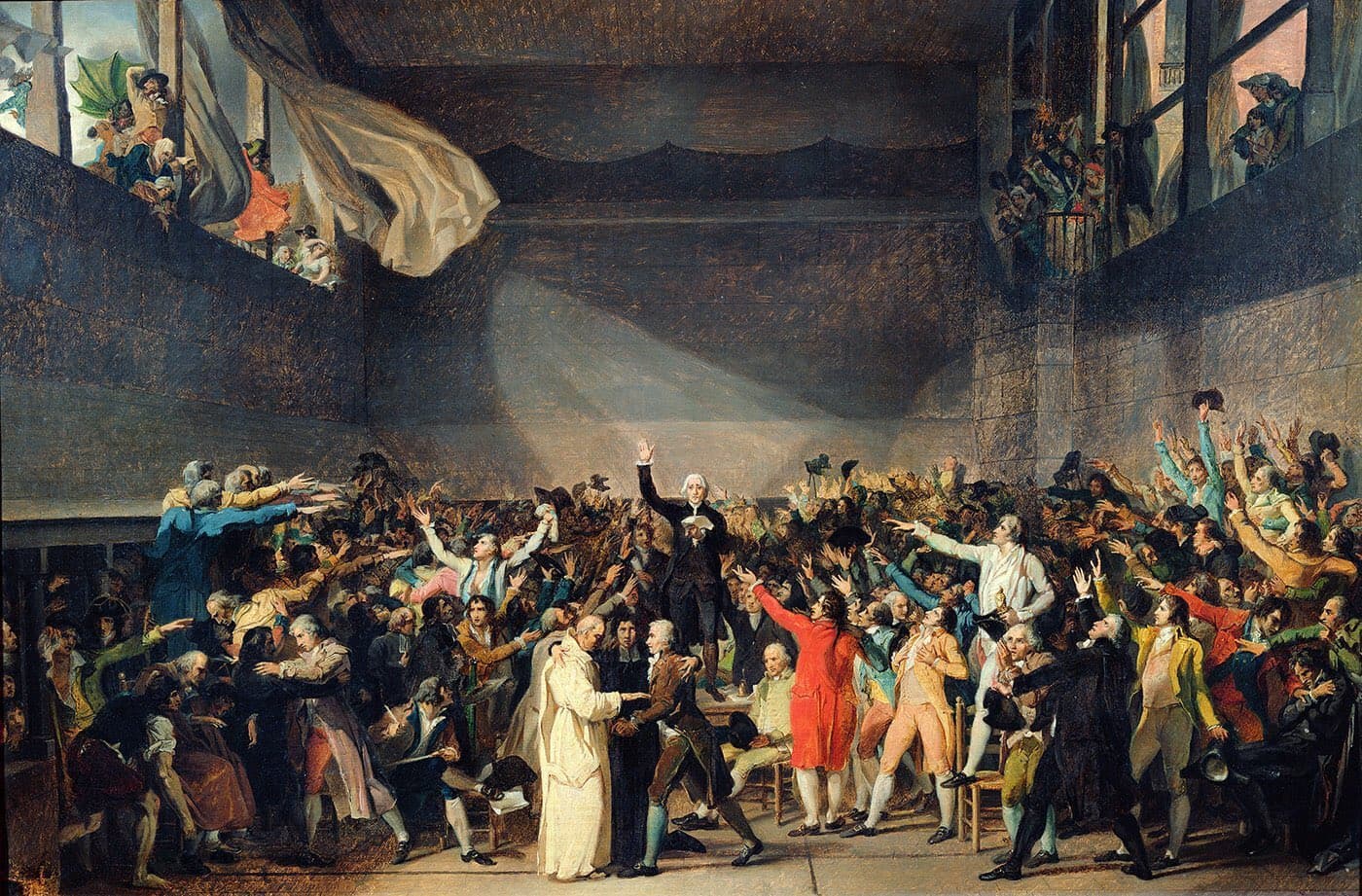
Why did Britain oppose the French Revolution?

The time Britain funded an invasion of itself... twice!
